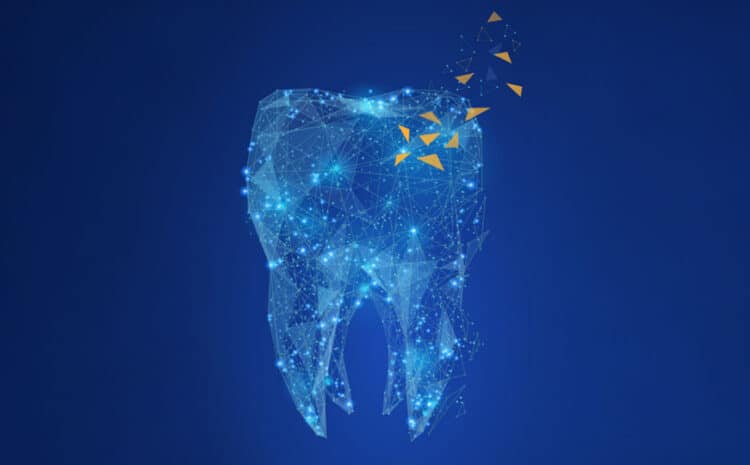
Understanding TMJ Disorders:
TMJ disorders encompass a spectrum of conditions affecting the temporomandibular joint and associated muscles, leading to a range of symptoms including jaw pain, clicking or popping sounds, limited movement, and muscle stiffness. These disorders can arise due to various factors such as trauma, arthritis, malocclusion, stress-induced habits like clenching or grinding, or anatomical irregularities.
Technological Advancements Reshaping TMJ Care:
Diagnostic Imaging Technologies:
Cutting-edge imaging modalities, such as cone-beam computed tomography (CBCT) and magnetic resonance imaging (MRI), have revolutionized the diagnostic process for TMJ disorders. These technologies provide highly detailed 3D images, allowing clinicians to visualize the intricate structures of the joint, assess tissue abnormalities, and precisely plan interventions.
Digital Occlusal Analysis:
Digital occlusal analysis systems utilize sophisticated technology to evaluate bite force, occlusion, and jaw movement dynamics. These systems offer precise measurements, aiding in identifying occlusal discrepancies and guiding treatment strategies for TMJ-related issues.
Computer-Aided Design and Manufacturing (CAD/CAM) for Occlusal Splints:
CAD/CAM technology has transformed the fabrication of occlusal splints, enabling the creation of custom-fit appliances. These splints, designed based on precise digital impressions, offer enhanced comfort and effectiveness in managing TMJ disorders.
Virtual Treatment Planning and Simulation:
Advanced software platforms facilitate virtual treatment planning and simulation for TMJ cases. Clinicians can analyze various treatment options, simulate outcomes, and develop comprehensive treatment plans tailored to individual patient needs.
Telemedicine and Remote Monitoring:
Telemedicine applications coupled with wearable devices allow for remote monitoring of TMJ patients. This technology enables continuous tracking of symptoms, and adherence to treatment protocols, and facilitates timely interventions without the need for frequent in-person visits.
Future Directions and Potential Impact:
Biomedical Engineering and Tissue Regeneration:
The intersection of dentistry with biomedical engineering is driving research into innovative biomaterials and tissue engineering strategies. These advancements aim to develop biocompatible implants or tissue scaffolds for repairing or regenerating damaged TMJ tissues.
Artificial Intelligence (AI) in TMJ Care:
AI algorithms integrated into diagnostic systems analyze vast datasets, aiding in early detection, precise diagnosis, and prediction of treatment outcomes. AI-powered tools have the potential to revolutionize TMJ care by offering insights derived from extensive patient data.
Robotics-Assisted Surgery:
Robotics-assisted surgical techniques are being explored for precise interventions in complex TMJ cases. These robotic systems, guided by advanced imaging and AI, can assist surgeons in performing minimally invasive procedures with improved accuracy.
Conclusion:
The convergence of advanced dentistry and technology is reshaping the landscape of TMJ care, offering unprecedented opportunities for precise diagnosis, personalized treatments, and enhanced patient outcomes. From innovative diagnostic imaging modalities to AI-driven analysis and robotics-assisted interventions, the synergy between dental science and technological innovation is propelling the field of TMJ care into a new frontier.
As research continues to push boundaries and technology evolves, the prospects for more effective, minimally invasive, and patient-centric approaches to managing TMJ disorders are on the horizon. Collaborative efforts between dental professionals, researchers, and technology developers will play a pivotal role in unlocking further advancements, ultimately improving the lives of individuals grappling with TMJ-related challenges.
Do you have any further questions about Advanced Dentistry and Technology in TMJ Care?
If you have any further questions about Advanced Dentistry and Technology in TMJ Care, you can schedule a consultation with Dr. Adatrow. Dr. Adatrow has more than 20 years of experience in placing dental implants, with a success rate of over 97%, and can provide you with the best possible dental treatment. He is a Board-Certified Prosthodontist and Periodontist in Hernando, MS region. Please get in touch with our office for your consultation now!About Advanced Dental Implant and TMJ Center
Advanced Dental Implant and TMJ Center provides personalized and specialized dental treatment for patients in Desoto County, MS and Memphis, TN areas. Dr. Pradeep Adatrow is Specialist in Dental Implants and Gum Diseases and provides patients with customized treatment plans to meet the oral health needs of his patients. Dr. Adatrow is the only practicing board-certified Periodontist and Prosthodontist in the South East United States. He earned his Doctor of Dental Surgery and Post Graduate Prosthodontic Training from the University of Tennessee College of Dentistry and his Post Graduate Training in Periodontics from Indiana University. Dr. Adatrow is board certified by the American Board of Periodontology and is a Fellow of the prestigious International College of Dentistry. Along with a devoted team of dental hygienists, assistants, and administrative staff, we strive for excellence in customer satisfaction. Please visit our website at www.advanceddentaltmj.com or call us at (662) 655-4868 to schedule a consultation.


